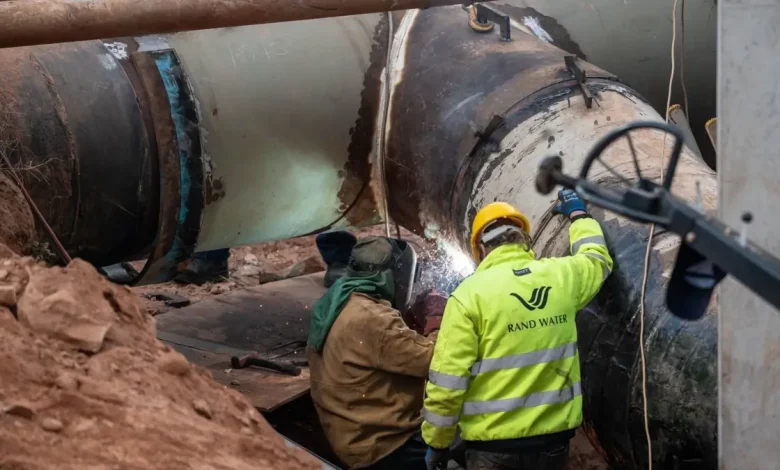Rand Water Confirms On-Schedule Progress for Planned Mid-2025 Maintenance

Rand Water, South Africa’s primary bulk water supplier, has confirmed that its critical maintenance program scheduled for mid-2025 is progressing as planned. This essential maintenance aims to improve the reliability, capacity, and operational efficiency of Rand Water’s infrastructure, ensuring a sustainable water supply for Gauteng and surrounding municipalities.

ALSO READ: Gauteng Water Crisis 2025: What’s Causing the Shortages and Who’s Affected?
Purpose and Scope of the Planned Maintenance
The maintenance program, which began on May 29, 2025, and is expected to conclude by June 2, 2025, involves key upgrades and repairs across multiple water supply systems. Rand Water’s CEO, Sipho Mosai, emphasized that the work is designed to enhance plant availability and prepare the network for increased water demand anticipated from August 2025.
The maintenance covers critical components such as pumping stations, pipelines, and treatment facilities at major systems including Eikenhof, Palmiet, Mapleton, and Zwartkopjes. By addressing aging infrastructure and improving operational efficiency, Rand Water aims to reduce the risk of unplanned outages and service disruptions.
Impact on Water Supply and Affected Areas
During the maintenance period, residents and businesses in Johannesburg, Ekurhuleni, Tshwane, and several local municipalities may experience low water pressure or intermittent supply. Affected municipalities include Rand West, Mogale City, Merafong, Madibeng, Lesedi, Govan Mbeki, Rustenburg, Royal Bafokeng Administration, Victor Khanye, Thembisile Hani, Midvaal, and Emfuleni.
To mitigate the impact, Rand Water and local authorities have arranged for water tankers to supply affected communities. Residents are urged to store sufficient water for domestic use and to use water sparingly during this period. Businesses and institutions are advised to maintain on-site water storage equivalent to at least 36 hours of daily demand.
Strategic Timing to Minimize Disruptions
Rand Water strategically scheduled this maintenance during the low consumption months of May through July 2025. This timing helps minimize the disruption to water users while allowing essential preventative maintenance to be carried out efficiently.
The company has also adhered to the required 21-day prior notice protocol by informing municipal customers in advance. These municipalities, in turn, are responsible for communicating the expected water supply interruptions and advising consumers on contingency measures.
How Residents Can Prepare for the Maintenance
Residents in affected areas should take proactive steps to ensure they have adequate water supplies during the maintenance window. Simple measures include:
- Storing clean water in containers for drinking and household use
- Limiting non-essential water use such as garden watering and car washing
- Reporting leaks promptly to local authorities to conserve water
- Following updates from municipal water departments regarding supply status
By adopting these practices, communities can better cope with temporary supply interruptions.
Long-Term Benefits of the Maintenance Program
While the maintenance may cause short-term inconvenience, it is crucial for the long-term sustainability of Gauteng’s water supply. The upgrades will enhance system reliability, reduce water losses from leaks, and increase capacity to meet growing demand.
Rand Water invests approximately R400 million annually in maintenance to safeguard the infrastructure that supports millions of South Africans. This ongoing commitment is vital for ensuring a resilient and efficient water network.
Rand Water’s Commitment to Reliable Water Supply
Rand Water’s mid-2025 maintenance program is a necessary and well-planned initiative to improve water infrastructure across Gauteng and neighboring municipalities. Although some areas may face temporary supply challenges, the long-term benefits include increased capacity, improved reliability, and better service delivery.
Residents and businesses are encouraged to prepare accordingly by storing water and conserving usage during the maintenance period. With cooperation and awareness, Gauteng can navigate this essential maintenance phase while securing a sustainable water future.




